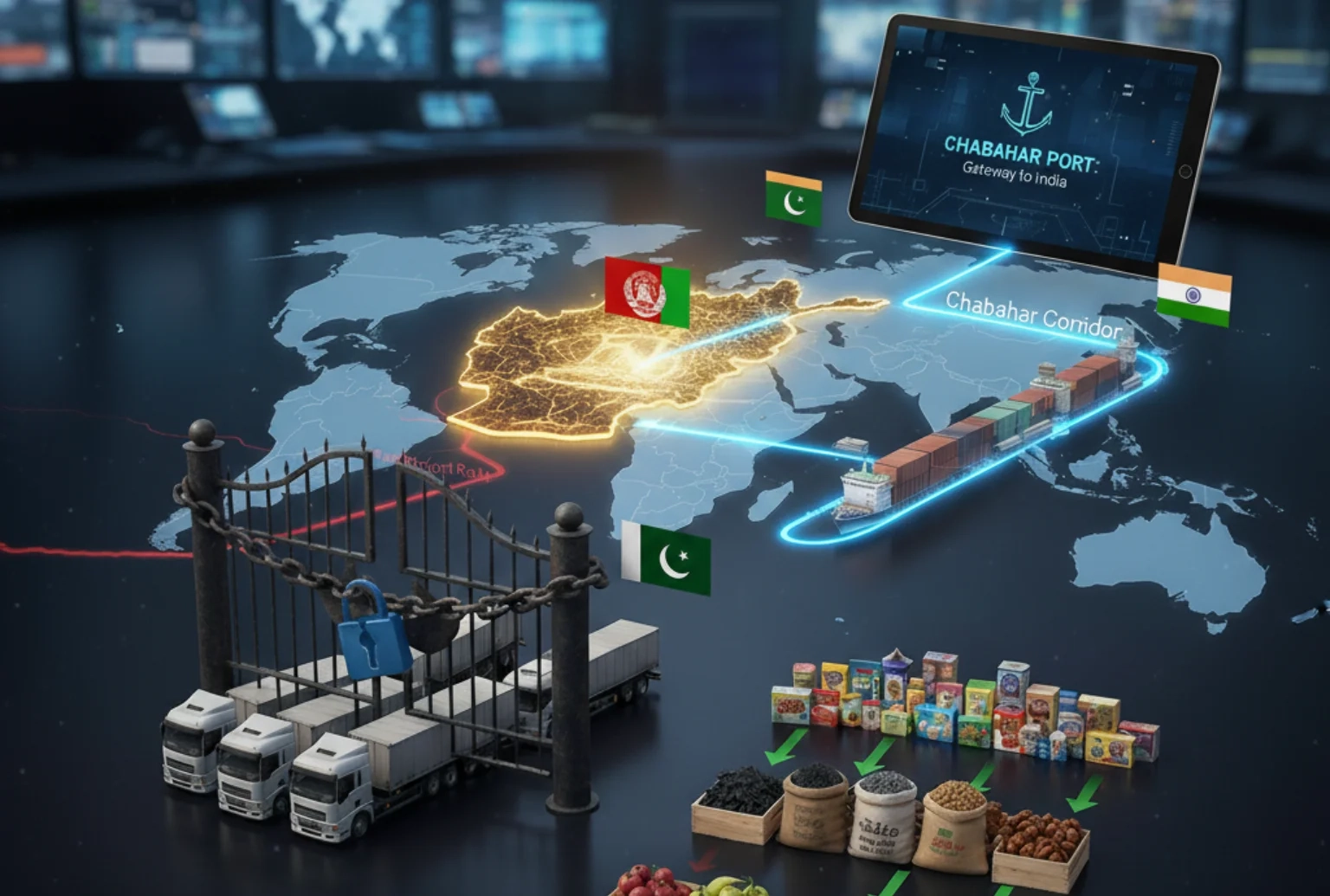Taliban Government Seeks Alternatives as Pakistan Closes Borders

Afghanistan’s Taliban government has stepped up efforts to diversify its trade routes, with Commerce Minister Nooruddin Azizi beginning a five‑day official visit to India. The trip comes after Pakistan closed all trade crossings with Afghanistan for nearly six weeks, leaving thousands of trucks stranded and disrupting bilateral commerce.
Azizi, speaking to the BBC before his departure, said the focus of talks in New Delhi would be on facilitating Afghan exports through Iran’s Chabahar port. He added that meetings with India’s private sector are planned to encourage investment and expand imports and exports between the two countries.
Push for Alternatives
Taliban officials have openly acknowledged that finding an “alternative to Pakistan” has become unavoidable. Kabul recently urged Afghan traders to avoid relying on Pakistani routes, citing repeated border clashes and delays.
Afghanistan has already showcased products from regional countries, including Iran, at trade exhibitions in Kabul, signaling its intent to strengthen ties beyond Pakistan. Officials argue that Afghan agricultural goods are well‑received in India due to their quality, making the Indian market a natural fit.
Background of Tensions
The push for new trade corridors follows the worst military clashes in years between Kabul and Islamabad, which left dozens dead and forced Pakistan to shut its borders. The closure of the Torkham and Chaman crossings, considered the backbone of Afghan trade, has stranded nearly 12,000 trucks carrying goods at Karachi and other ports.
While Afghanistan’s trade with Central Asian states such as Uzbekistan, Kazakhstan, Turkmenistan, Kyrgyzstan, and Tajikistan has grown, Pakistani routes remain the cheapest and fastest for perishable goods like fresh fruit.
Economic Stakes
According to Pakistan’s Trade Development Authority, bilateral trade heavily favors Pakistan. In the last fiscal year, Pakistan exported $1.4 billion worth of goods to Afghanistan, while imports from Afghanistan stood at $610 million. Informal trade volumes are also significant, with Pakistan supplying rice, cement, medicines, and poultry, while Afghanistan exports fruits, dry fruits, and coal.
Business leaders warn that the blockade could hurt both sides. Junaid Makda, President of the Pak‑Afghan Joint Chamber of Commerce, described the situation as damaging for both economies. However, other analysts, including Nasir Khan of FPCCI, argue that Pakistan stands to lose more, as Afghanistan is a major market for Pakistani food and consumer goods.
Regional Shifts
Observers note that the vacuum created by Pakistan’s closure could benefit Iran and India, both eager to expand their footprint in Afghan markets. India has already supplied flour and commodities via air routes and is expected to leverage Chabahar for greater access.
Pakistani officials, meanwhile, maintain that national security takes precedence. Rana Ehsan Afzal, Prime Minister’s Coordinator for Trade, said that while the blockade may cost Pakistan up to two billion dollars in exports, the losses are minor compared to the impact of extremism on investment and the mining sector.
Outlook
Afghanistan’s commerce ministry hopes the New Delhi visit will pave the way for smoother trade flows through Iran and India, reducing reliance on Pakistan. Whether these efforts succeed will depend on regional cooperation and the ability to balance political tensions with economic necessity.

